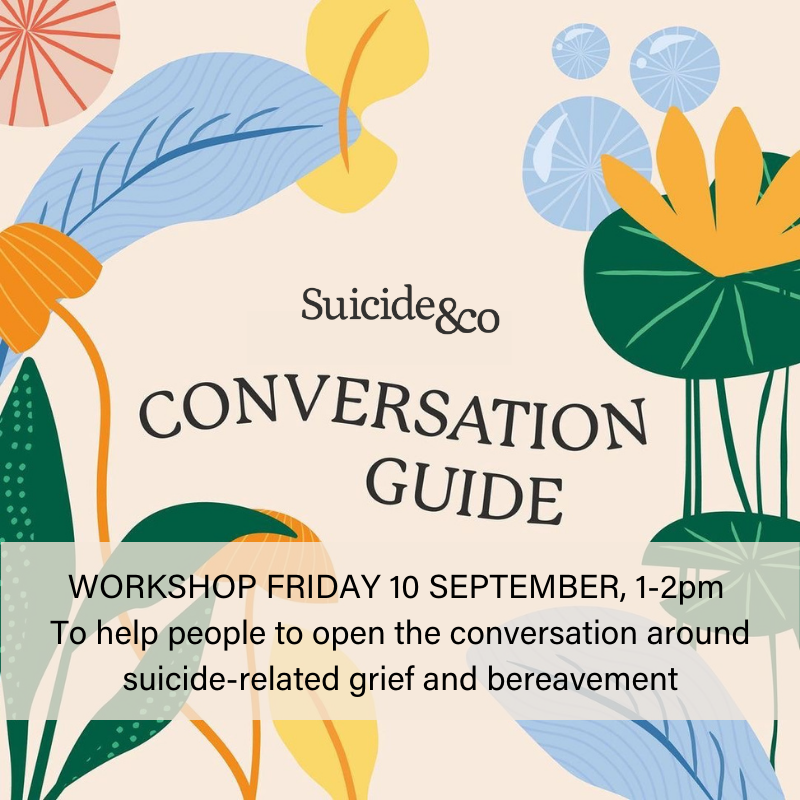The importance of conversation around suicide
I’ve been bereaved by suicide seven times in my life already. Through that, I’ve learnt suicide can have a ripple effect, extending well beyond the person’s immediate family and friends. Sometimes extending to people they hadn’t even engaged with in years. I’ve felt differently for each one, dependent on my relationship to the person who has died, my memories with them, the strength of the attachment and the circumstances around their death.
When Jason died almost eight years ago, I didn’t think I’d ever feel ‘normal’ again. He wasn’t the first bereavement I’d had by suicide, but he was the hardest. I had such a strong relationship with him and so much love for him. Losing him was all I could think about for hours, days, months and years to come. Part of me also felt ashamed it was having such an impact. I wasn’t his closest friend, and I certainly wasn’t one of his beautiful children. I didn’t feel like I had the right to have these feelings.
I struggled for years, and not many people knew how to approach it with me. It was almost like overnight people were nervous about using his name anymore, and all my fond memories with him were erased. I know there were no bad intentions behind it. People just didn’t have the skills to start a conversation with me.
At the same time, I didn’t know how to talk about it with others either. Most of the times I did talk about it, it was after a few (too many) wines, and it all came erupting out. I was not far from hitting rock bottom.
When I was okay, it was due to people allowing me to speak freely and helping me understand it was okay to feel what I was. I’ll forever be grateful to a previous manager, Rod Millynn and a work colleague Blake Pelling. I was living away from home (New Zealand) and my regular support network. They both tremendously helped me by giving me space to talk openly and made me realise I needed to have conversations about my grief.
Over the last eighteen months, I’ve been bereaved by suicide three times. The difference has been I’ve learned the skills to communicate my grief, sit with it, and do what I need to honour these beautiful people who impacted my life.
I’ve also had those around me look into how to have conversations with me and support me through it. Although this doesn’t remove the pain, it does make the grief journey feel a lot less lonely.
With 1 in 5 people affected by suicide in the UK, and coming from New Zealand with some of the highest suicide statistics in the OECD, I strongly believe these communication skills are something we should all learn. As I’ve experienced, a lack of conversation can lead to feelings of isolation, awkward silences and bottling up of emotions.
I’m incredibly proud we’ve invited Amelia, co-founder of Suicide&Co on World Suicide Prevention Day (Friday 10th September) to run a workshop on how to have these conversations. Amelia will take you through their new Conversation Guide. During this one-hour session, you’ll learn:
- How to support someone through their grief journey
- Ways to support yourself if you’re bereaved
- How business leaders can help their teams through their grief journey
I hope you can join Amelia and me. You can sign up here.
While losing someone close to you to suicide can be an extremely painful and emotionally complex experience, learning to communicate your grief and others learning to communicate with you can really help those who are bereaved.


